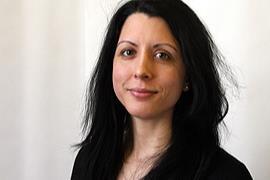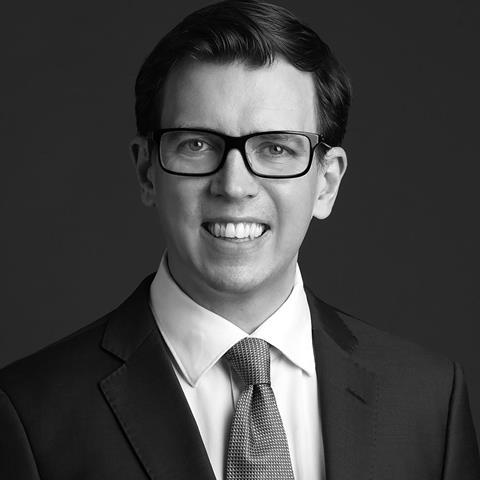In what has become a traditional pre-Christmas announcement, 95 lawyers were revealed to have made the silk cut in 2022. Following the Queen’s death last September, the crop had the added distinction of being the first for 70 years to become King’s Counsel (if you ignore the ‘nylons’, or politicians who become law officers and are made up on appointment to office).

Among the 95, one solicitor was appointed from eight who applied – the lowest success rate since 2010. Flying the flag for solicitors was Michael McClure, who in common with most of those appointed in the past is an international litigator. McClure leads Herbert Smith Freehills’ dispute resolution practice in Korea and heads its Seoul office. He is the fourth KC practising at the firm.
Since solicitors were permitted to apply for the quality mark, only 64 have been appointed – from fewer than 200 applications. The first two, made up in 1997, were Lawrence Collins, head of litigation at Herbert Smith, who went on to become a Supreme Court judge, and commercial arbitrator Arthur Marriott.
Twenty come from just five firms: Freshfields Bruckhaus Deringer (five); Herbert Smith Freehills, Three Crowns and Skadden Arps Slate Meagher & Flom (four each); and King & Spalding (three).
But from a profession of more than 160,000 (in contrast to the bar, which has around 17,000 practitioners, of whom around 10% are KCs), why have so few applied in the almost 20 years since solicitors became eligible in 1995? Why have fewer than a third succeeded? And why is it that most are disputes lawyers in international law firms?

A simple answer is that barristers have been awarded the rank since the reign of Queen Elizabeth I. For many lawyers, KC is still synonymous with barristers reaching the pinnacle of their career. For solicitors, the ultimate accolade has traditionally been making equity partner in a law firm.
Unlike in many chambers, where clerks help build barristers’ practices to include the right case mix to impress the KC selection panel, law firms do not have such a structured path. Candidates must complete a 65-page application, providing examples of difficult cases they have conducted in the higher courts, or in tribunals or arbitrations, against five competencies, with supporting testimonials from judges and others.
Solicitors argue that the nature of their work, which is less court-based, means they are less able to provide the required references from judges, and lack the chambers and inns networks that facilitate judicial contacts. More fundamentally, the award, which is intended to be a hallmark of excellence in advocacy, remains more focused on oral rather than written ability, marking the historical division between the work done by the two professions.
Moves that encourage the settlement of cases out of court may further reduce opportunities for solicitors, as well as barristers, to provide a compelling case portfolio.
As for many barristers whose practices focus predominantly on publicly funded work, the cost may be off-putting. The application fee, which rose last year for the first time in 10 years, is £1,900 (up from £1,800). Successful candidates have to pay a further £3,200 (previously £3,000), plus the cost of letters patent.
King’s Counsel Appointments (KCA), the company set up in 2006 to take over the selection process from the Department for Constitutional Affairs, has made noises about encouraging more solicitors to apply, supported by the Law Society. Their efforts have so far proved largely fruitless. Still, at least KCA knows how many solicitors have been appointed. Surprisingly, it was unable to say how many black lawyers have been appointed silk since its inception.
Expanding the ethnic diversity of silks has been slow. A 2021 Bar Council report revealed that there were just five black female QCs and 17 black male QCs; along with 17 female Asian silks and 60 Asian men.
Among the 2022 appointments, of the 43 successful candidates, 14 declared an ethnic origin other than white, compared with 15 from 38 in the previous year. Four of those were black, from nine applications – the same as in 2021.
Eleanor Platt KC has kept a list of all the women silks since the first two – Helena Normanton and Rose Heilbron – were appointed in 1949. Every year she sends a letter of congratulations to each new female silk. In total there have only been about 600.
A record number of women (77) applied last year, but only 36 successfully, compared with 45 out of 72 in the previous year. However women were far more successful than men, with 47% appointed, compared with 29% of male applicants.
Of course, law firms could do more to encourage solicitors to apply and the Law Society and KCA could further increase awareness of the steps involved to help solicitors shine.
However, cutting the cost of applying could be the best way of increasing the number of applicants from a more diverse spread of practitioners– whether they be legal aid lawyers, women, solicitors, or those from an ethnic minority background. Turning over around £800,000 a year, and with accumulated reserves of £1.35m in 2019 (before donating £200,000 to help barristers and solicitors struggling because of the impact of the pandemic), the not-for-profit company set up by the Law Society and the Bar Council could well afford to do so.
Catherine Baksi is a freelance journalist and qualified barrister































2 Readers' comments